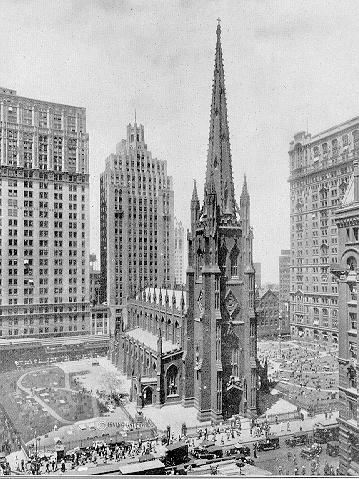

Religion held an important place in nineteenth century American society. After his visit to the United States in the 1830's, French aristocrat Alexis de Tocqueville commented on the religious zeal of Americans: "(There is) no country in the whole world where the Christian religion retains greater influence over the souls of men than in America." This observation still held true in 1850 American society. Both Catholic and Protestant congregations actively supported the work of missionaries both home and abroad. Reformers sought to solve social problems through the use of Protestant influences and education. It was expected that Christians would participate in charitable works and not shirk their duty to help their fellow man. The placing out movement would not have been able to succeed without the participation of Christians answering their call to charitable duty.
Charles Loring Brace was a deeply religious man. He ardently believed in the "mortal and metaphysical superiority of Christ," and that religious education was of primary importance in the development and attainment of the values necessary for social stability. The placing out program was the result of Brace's missionary work among the poor and his spiritual determination to improve the lives of poor children. Brace appealed to rural families to "open their hearts" and homes to CAS children, and to wealthy urban families to open their pocketbooks in Christian charity in financing the program.
The entire concept of the placing out system relied on the charitable impulses of the families who took children into their homes, and the monetary generosity of middle and upper class New Yorkers who supported the program economically. Brace operated the program strictly on charitable donations the first seventeen years of the program, until the CAS began to receive grants from state, county and local governments in 1871.
Brace called upon Protestant ministers and respected officials in rural towns to provide acceptable homes for CAS children arriving in their communities. Brace trusted these community leaders, especially the ministers, to place the children in good Protestant homes where they would have an opportunity to learn the morals and values that would allow them to become good citizens. To Brace, the work of the CAS had become a religious enterprise, an attempt to express God's love in a way that improved the soul of everyone involved.
As a result of his trust in God, and his confidence in the abilities of Protestant ministers to place CAS children in proper homes, Brace estimated a failure rate of less than ten percent of all CAS placements. Religious expectations and practices of nineteenth century society clearly influenced Charles Loring Brace and the policies and practices of the CAS.